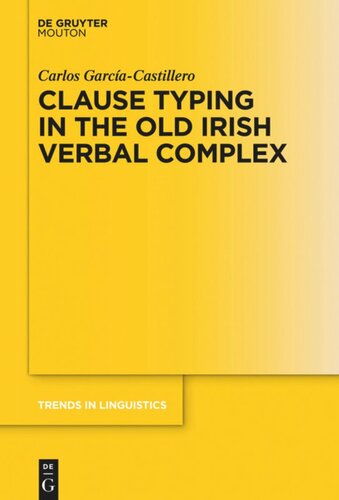

Most ebook files are in PDF format, so you can easily read them using various software such as Foxit Reader or directly on the Google Chrome browser.
Some ebook files are released by publishers in other formats such as .awz, .mobi, .epub, .fb2, etc. You may need to install specific software to read these formats on mobile/PC, such as Calibre.
Please read the tutorial at this link: https://ebookbell.com/faq
We offer FREE conversion to the popular formats you request; however, this may take some time. Therefore, right after payment, please email us, and we will try to provide the service as quickly as possible.
For some exceptional file formats or broken links (if any), please refrain from opening any disputes. Instead, email us first, and we will try to assist within a maximum of 6 hours.
EbookBell Team

0.0
0 reviewsAustin’s words on page 1 of his seminal work How to do things with words are valid for this study on clause typing in the Old Irish verbal complex: “The phenomenon to be discussed is very widespread and obvious, and it cannot fail to have been already noticed, at least here and there, by others. Yet I have not found attention paid to it specifically”.
Old Irish, a regular V1 language, morphologically distinguishes six clause types, to wit, declarative, relative, wh- and polar interrogative, responsive and imperative clause types. After discussing the constituency of the Old Irish verbal complex and the pragmatically marked orders, i.e. cleft-sentence and left-dislocation, the form, function, paradigmatic consistency and syntax of those clause types are then analysed in detail. The other main issues of this study are the descriptively adequate paradigm of clause types and the interaction of clause typing with subordination and with non-verbal predication in Old Irish.
This monograph offers a comprehensive view of clause typing, its morphological expression and related phenomena in the earliest Insular Celtic language, and may also contribute to the general consideration of these topics in both the typological and diachronic perspectives.